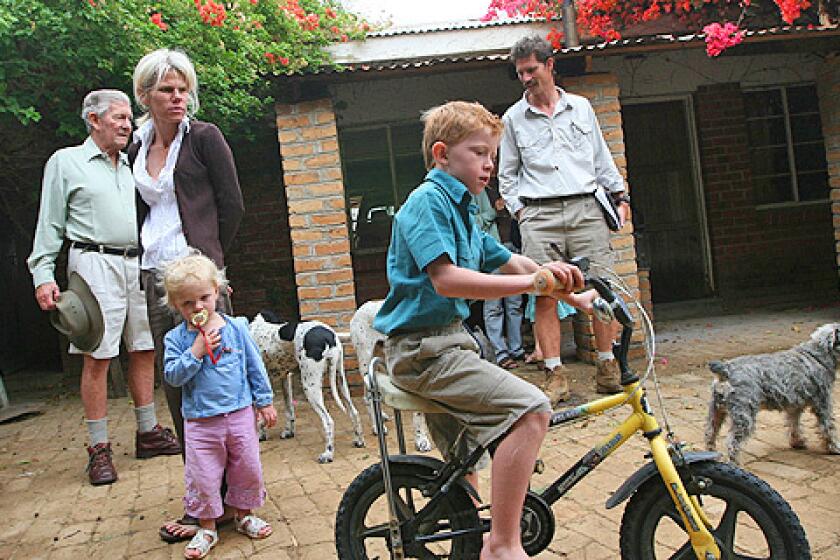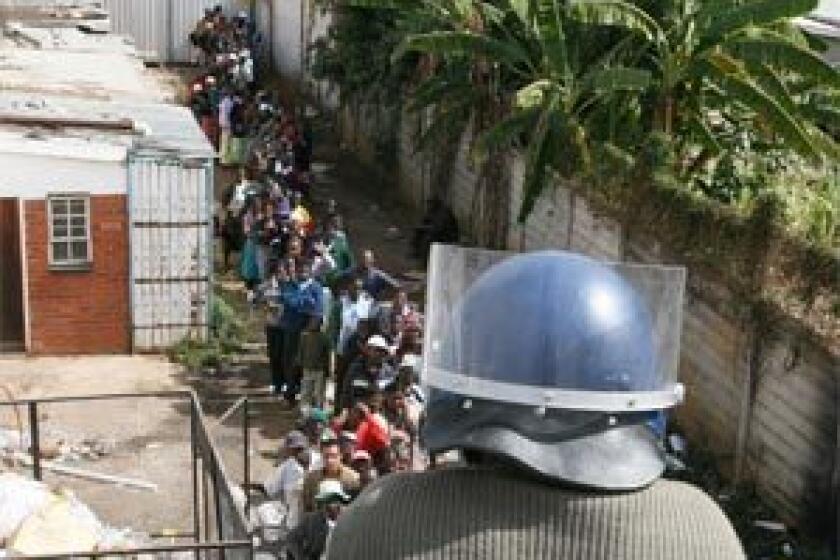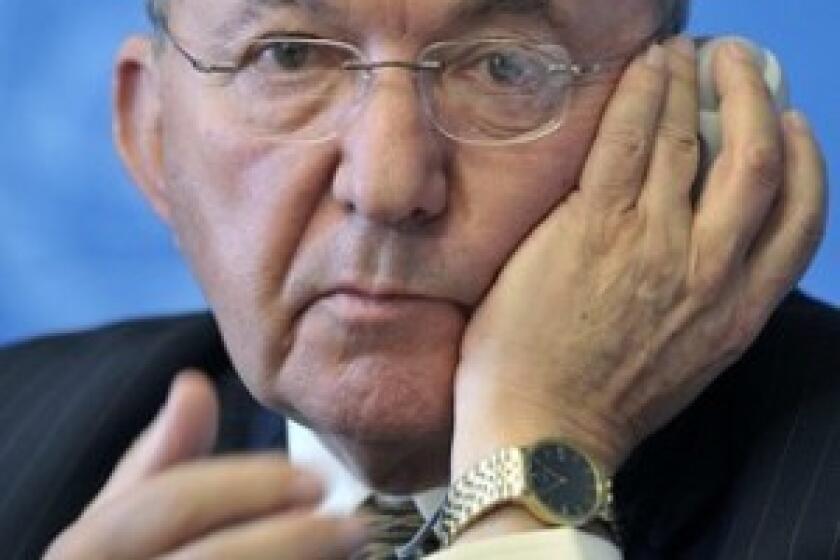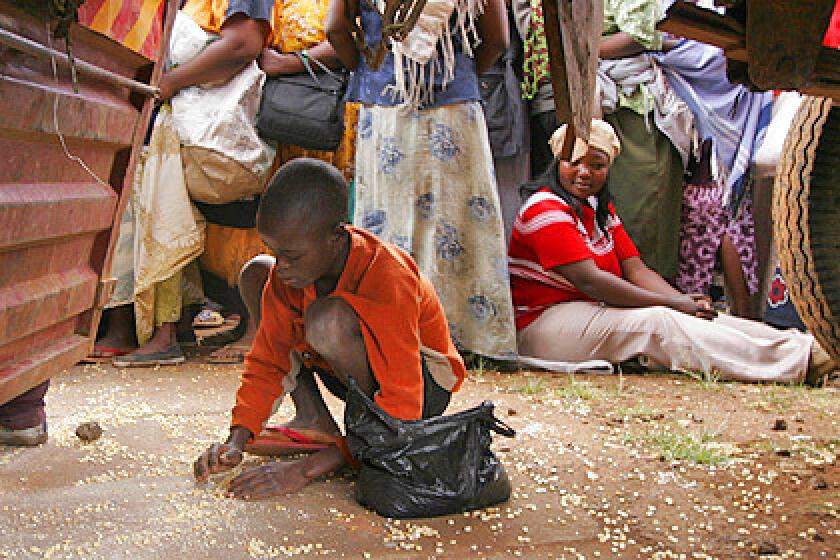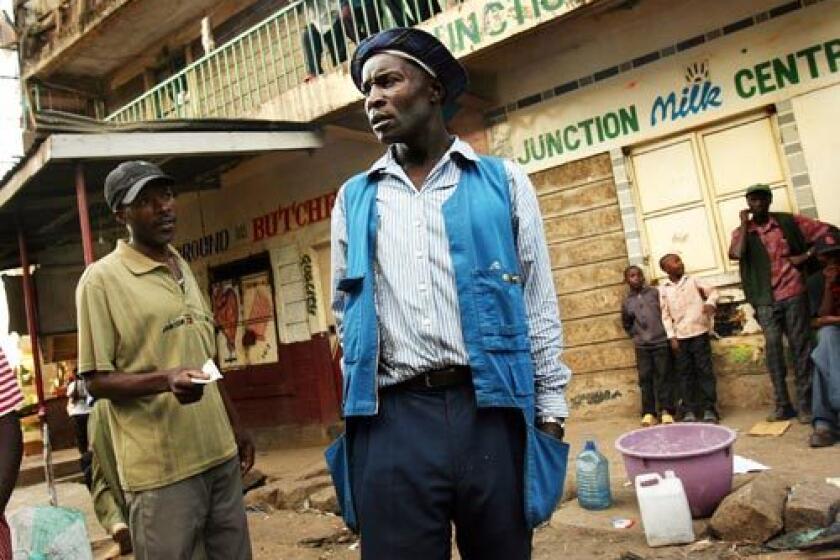Johannesburg
Robyn Dixon, Bureau Chief
Robyn Dixon, who covers sub-Saharan Africa, has also reported from Russia, the Caucasus, Central Asia and other parts of the former Soviet Union, Afghanistan and Iraq. She spent 10 years in Moscow, traveling extensively to Ukraine, Georgia, Tajikistan and across Russia. She started as a cub reporter in her home city of Melbourne. After doing every conceivable job, from writing a daily TV column to covering national politics in Canberra, she went to Moscow for The Sydney Morning Herald and The Age, sister papers of the Fairfax group in Australia. In 1999 Dixon shifted to the Times Moscow bureau. In 2003, she moved to Johannesburg.
 Follow Robyn Dixon on Facebook
Follow Robyn Dixon on Facebook
- 1
Wangari Maathai taught her countrywomen to plant trees. She became Africa’s first female Nobel Peace Prize winner.
- 2
His 1958 debut novel, ‘Things Fall Apart,’ presented European colonization from an African viewpoint and established him as the patriarch of modern African literature.
- 3
Yar’Adua took office in 2007 with an ambition of modernizing his nation and cleansing it of corruption. But his political weakness and persistently bad health left him unable to accomplish much.
- 4
When cows are traded for an unwilling bride, rural Zulu women lose their freedom, and more. Called thwala, the practice is often abused, activists say.
- 5
Tens of thousands drop out of the education system annually because of pregnancy. One was studying law when ‘one stupid night’ changed her life.
- 6
Ghana President John Atta Mills had run on a platform of change in the country seen as a beacon of democracy in West Africa.
- 7
A nonprofit plans to offer training and networking to boost the continent’s business development.
- 8
TerreBlanche, 69, who formed the paramilitary Afrikaner Resistance Movement in the 1970s, is hacked and bludgeoned to death after arguing with two workers who said they hadn’t been paid.
- 9
Burglars stole hard drives that contained the archive of five years of the artist’s extraordinary work celebrating lesbians in many African countries.
- 10
Campbell fought President Robert Mugabe’s taking of white-owned farms in the region’s highest court, which found the actions illegal and racist. In 2008, Campbell was savagely beaten by Mugabe loyalists.
- 11
With hyperinflation at 7,900% and people using up their savings just buying food, life has been reduced to the queue.
- 12
The paleoanthropologist, nominated three times for a Nobel Prize, excavated the Sterkfontein Caves, one of his nation’s most important fossil sites. He also did research in the Olduvai Gorge in Tanzania.
- 13
Richard Goldstone of South Africa, a Jew, says he will talk to all the victims, on both sides. His appointment poses a policy question for Israel’s new government.
- 14
Rising prices mean more hunger for the people of Swaziland, most of whom already live in dire poverty.
- 15
Sharing the 2011 Nobel Peace Prize are Liberian President Ellen Johnson-Sirleaf; her countrywoman Leymah Gbowee, a peace activist; and Tawakul Karman, a Yemeni human rights leader.
- 16
One-third of the people depend on foreign food aid, with the rural poor most affected.
- 17
U.N. food agency says the situation is dire, with roads blocked amid tension and unrest over the disputed presidential election.
